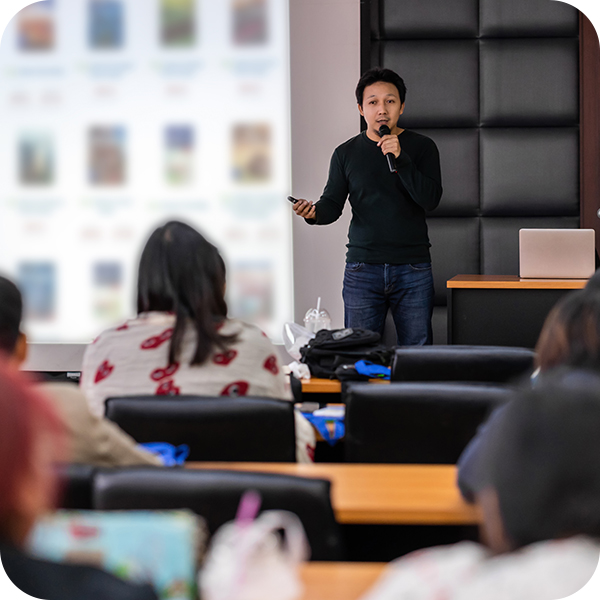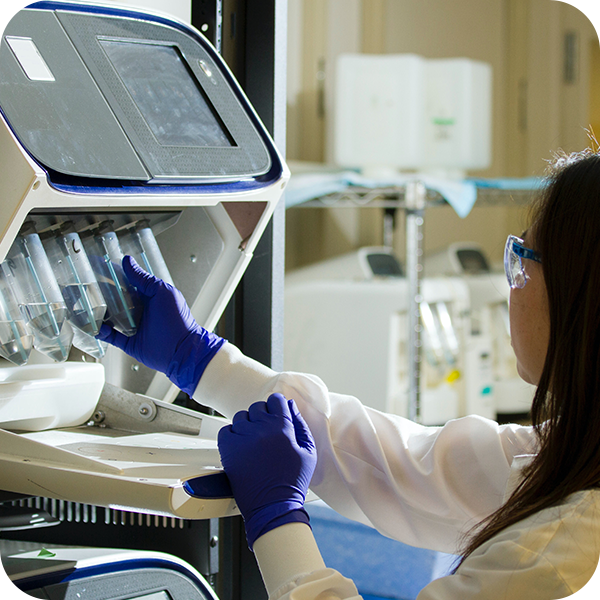



We offer continuous training to help user get the most of out of their instrument and expand the analysis capability.
These training courses for laboratory personnel are designed to improve user confidence, performance, reduce instruments downtime due to misuse, and increase lab productivity.
Training Courses & Training Goal
Course 01
Gas Adsorption (Physisorption) Instrument Theory and Application Training
- Training Duration: 2 Days
Who should attend this training course?
- R&D in material synthesis, QA&QC, Lab personnel etc
Training Goal
The goal of the training course:
- Be able to prepare sample for degassing and sample analysis
- Understand the basic fundamentals of physisorption and basic operation of a volumetric analysis system
- Be able to use the computer and operational software to perform ana analysis on a reference material
- Be able to properly configure any report format, a combination of reports, and obtain analysis information according to your laboratory requirements
- Be able to make basic user level maintenance and troubleshooting of gas adsorption instrument
Course 02
Gas Adsorption (Chemisorption) Instrument Theory and Application Training
- Training Duration: 2 Days
Who should attend this training course?
- R&D in material synthesis, QA&QC, Lab personnel etc
Training Goal
The goal of the training course:
- Be able to carry out chemisorption analysis such as TPR/Pulse Chemisorption & TPD
- Understand the basic fundamentals of chemisorption and basic operation of a dynamic (flowing gas) analysis system
- Be able to properly configure a report format, overlay sample data, and obtain analysis information according to your laboratory requirements.
- Be able to make basic user level maintenance and troubleshooting of chemisorption instrument
Course 03
Mercury Intrusion Porosimetry Instrument Theory and Application Training
- Training Duration: 1 Days
Who should attend this training course?
- R&D in Catalysis, QA&QC, Lab personnel etc
Training Goal
The goal of the training course:
- Understand the basic fundamentals of mercury porosimetry
- Understand how to safely handle mercury with the instrument
- Understand the basic fundamentals of AutoPore operation and be able to properly analyse a sample of reference material
- Understand how to use the operating software with a PC in order to operate the AutoPore
- Be able to properly configure any report format, a combination of reports, and obtain analysis information according to your laboratory requirements
- Be able to make basic user level maintenance and troubleshooting of mercury intrusion instrument
Course 04
Dynamic Light Scattering and Zeta Potential Instrument Theory and Application Training
- Training Duration: 1 Days
Who should attend this training course?
- R&D in Catalysis, QA&QC in food/cosmetics/pharma etc, Lab personnel etc
Training Goal
The goal of the training course:
- Understand the basic fundamentals of DLS, ELS, SLS and Molecular Weight Determination
- Able to make a DLS and Zeta Potential analysis using reference material
- Understand how to use the operating software with a PC in order to operate the DLS/ELS instrument
- Be able to properly configure any report format, a combination of reports, and obtain analysis information according to your laboratory requirements
- Be able to make basic user level maintenance and troubleshooting of DLS/ELS instrument
Course 05
Static Light Scattering and Shape model for Particle Size/Shape Analysis Theory and Application Training
- Training Duration: 1 Days
Who should attend this training course?
- R&D in Catalysis, QA&QC, Lab personnel etc
Training Goal
The goal of the training course:
- Understand the basic fundamentals of Particle Size measurement and its terminology
- Understand the strength and weaknesses of each technique
- Able to select a dispersion method suitable for the sample
- Able to grasp the important factor of Particle Size measurement
- Able to perform Particle Size measurement using SLS instrument
- Be able to properly configure any report format, a combination of reports, and obtain analysis information according to your laboratory requirements
- Be able to make basic user level maintenance and troubleshooting of SLS instrument
Course 06
Powder Flowability Characterisation Theory and Application Training
- Training Duration: 1 Days
Who should attend this training course?
- R&D in Catalysis, QA&QC, Lab personnel etc
Training Goal
The goal of the training course:
- Understand the basic fundamentals of Powder flowability measurement
- Understand how the processing of material under different packing states such as aeration, conditioning and consolidated affect the powder flow characteristics
- Have thorough insight regarding flow in differing processing environments such as
- Stability (How repeatable is the flow energy with the same blade speed?)
- Variable Flow Rate (How does the flow energy change with decreased blade speed?)
- Aeration & De-aeration (How does the flow energy change with a change in air velocity passed through the powder bed?)
- Compaction (What is the comparison between tapping and direct pressure as a mode of consolidation?)
- Permeability (How readily does air pass through the powder?)
- Compressibility (How does the bulk density change as a downward compaction force is applied?)
Join Our Training Courses
Please fill in the form to take part in our training courses. Do not hesitate to contact us if you require further information.
